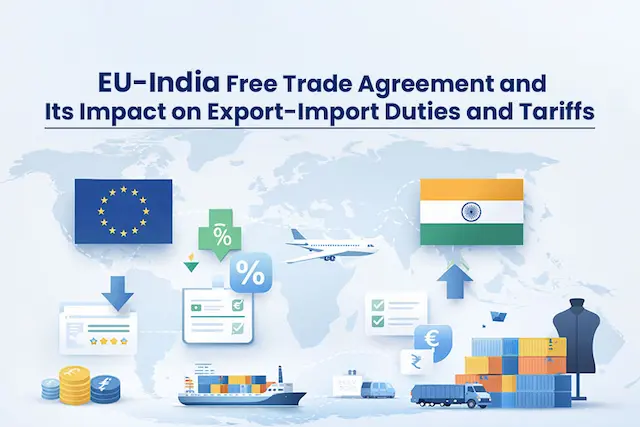In the dynamic landscape of international trade, establishing and maintaining robust relationships with export factoring partners is crucial for the success and growth of businesses. Export factoring, a financial tool that allows companies to sell their invoices to a third party (the factor) to improve cash flow, can be a game-changer when handled effectively.
In this comprehensive guide, we will delve into strategies and tips to enhance your interactions with export factoring partners and forge stronger, mutually beneficial relationships.
Understanding Export Factoring: A Brief Overview
Before diving into relationship-building strategies, it’s essential to have a solid understanding of export factoring. Define the concept, highlight its benefits for businesses engaged in international trade, and explain how it differs from other financing options. This section sets the stage for the importance of establishing strong partnerships with export factoring companies.
Also Read: A Comprehensive Guide to Export Finance in India
Identifying the Right Export Factoring Partner
Selecting a reliable export factoring partner is crucial. Explore reputations, align goals, and communicate effectively for success.
1. Thorough Research and Due Diligence
Before entering into a partnership, thoroughly research export factoring companies. Assess their reputation, industry expertise, and track record in facilitating international transactions. Scrutinize their performance by checking client reviews and case studies. Additionally, consider financial aspects such as fees, ensuring transparency, and understanding the cost structure. Evaluate the flexibility of their services, including the ability to accommodate your business’s unique needs. Customer support is paramount; inquire about their responsiveness and willingness to address concerns promptly. A comprehensive understanding of the export factoring landscape ensures you choose a partner aligned with your business requirements.
2. Alignment with Business Needs
To optimize the benefits of export factoring, assess how well a potential partner aligns with your business goals and values. Look for specialization within your industry or target markets, as this indicates a deeper understanding of the challenges and opportunities specific to your sector. A partner with industry-specific knowledge is better equipped to navigate complexities and tailor their services to your business requirements. Aligning with a partner who shares your values fosters a collaborative and mutually beneficial relationship, enhancing the overall effectiveness of the export factoring arrangement.
3. Clear Communication
Effective communication is the cornerstone of a successful export factoring partnership. Establish open and transparent communication channels from the outset. Clearly articulate your expectations, ensuring both parties are on the same page regarding the scope of services, timelines, and deliverables. Inquire about the partner’s processes and policies to gain insight into their operational standards. This clarity helps prevent misunderstandings and sets the foundation for a transparent and trustworthy relationship. Regular communication, both formal and informal, ensures that any potential issues are addressed promptly, contributing to the overall success of the partnership.
4. Technology Integration for Efficiency
Evaluate the export factoring partner’s approach to technology. A modern and tech-savvy partner can significantly streamline processes such as invoice submission and processing. Explore whether they leverage digital platforms for seamless transactions, providing transparency and efficiency in financial operations. Technology integration not only enhances the speed of transactions but also contributes to a more robust and future-ready partnership.
5. Risk Mitigation Strategies and Credit Insurance
Discuss the export factoring partner’s approach to risk management. Collaborate on assessing and mitigating potential risks associated with international trade. Inquire about the availability and suitability of credit insurance options. A partner with robust risk mitigation strategies adds an additional layer of security to the partnership, safeguarding against non-payment risks and unforeseen challenges. Clear communication regarding risk management ensures that both parties are aligned on strategies to protect the financial interests of your business.
Nurturing the Relationship
Foster trust through open communication, collaborate on strategies, and embrace adaptability for a resilient partnership.
1. Open Dialogue and Transparent Communication
Foster a robust relationship by establishing open channels for communication. Regularly share insights, updates, and feedback to build trust. Transparency is paramount; openly discuss any concerns or changes in your business that might impact the partnership. This not only prevents misunderstandings but also strengthens the foundation of mutual understanding and collaboration.
2. Collaborative Approach and Strategic Involvement
Nurture collaboration by involving the factoring partner in strategic discussions. Invite their input on optimizing cash flow and mitigating risks. A collaborative mindset ensures that both parties contribute to decision-making processes, fostering a sense of shared responsibility. This active involvement creates a partnership that goes beyond transactional interactions, aligning the objectives of both your business and the factoring partner for long-term success.
3. Adaptability and Flexible Terms
Recognize the dynamic nature of international trade and emphasize adaptability. Be open to adjustments in strategies and operations based on evolving market conditions. Engage in proactive discussions to ensure that the partnership remains agile and responsive to changes. Additionally, discuss and agree on flexible terms that accommodate the evolving needs of both parties. Flexibility in the partnership allows for adjustments in financing terms, repayment schedules, and other aspects, ensuring a harmonious collaboration even in the face of uncertainties.
Streamlining Processes for Efficiency
Optimize collaboration with technology, automated reporting, risk mitigation, and continuous improvement for streamlined efficiency.
1. Technology Integration
Leverage cutting-edge technology to streamline the entire invoice submission and processing workflow. By embracing digital platforms, you enhance the transparency and efficiency of financial transactions. Explore innovative solutions that not only automate manual processes but also provide real-time visibility into the status of invoices. This technology-driven approach not only saves time but also reduces the likelihood of errors, contributing to a smoother and more streamlined collaboration.
2. Automated Reporting Systems
Implement state-of-the-art automated reporting systems to gain real-time insights into your financial transactions. Ensure that both parties involved have seamless access to relevant data. This not only facilitates informed decision-making but also fosters a collaborative environment where insights are shared promptly. Automated reporting adds a layer of efficiency, allowing for quick analysis of performance metrics, identifying areas for improvement, and making data-driven decisions to optimize the partnership.
3. Risk Mitigation Strategies
Collaborate proactively on comprehensive risk assessment and mitigation strategies. Engage in open discussions to identify potential risks associated with international trade. Additionally, discuss and strategize on credit insurance options to shield against non-payment risks. A well-thought-out risk mitigation plan ensures that both your business and the export factoring partner are well-protected, contributing to the overall efficiency and sustainability of the partnership.
4. Continuous Process Improvement
Establish a culture of continuous improvement within the partnership. Regularly review and refine the processes to enhance efficiency and adapt to evolving market dynamics. Encourage open communication on areas that can be optimized and seek feedback from both sides. By fostering a commitment to ongoing improvement, the partnership becomes more agile, ensuring that processes remain efficient and aligned with the dynamic nature of international trade.
5. Collaboration on Credit Terms
Engage in collaborative discussions about credit terms to ensure mutual satisfaction. Clearly define and agree upon credit-related terms, such as repayment schedules and interest rates, that meet the needs of both parties. Collaborative decision-making on credit terms strengthens the partnership by aligning financial expectations, contributing to a smoother and more efficient financial relationship.
6. Proactive Issue Resolution Protocols
Anticipate potential challenges and establish proactive issue resolution protocols. By defining clear procedures for addressing any concerns or disputes, both parties can expedite the resolution process and prevent minor issues from escalating. Proactive issue resolution contributes to a more efficient partnership, maintaining a positive working relationship even in the face of challenges.
7. Legal Clarity and Contractual Agreements
Ensure legal clarity by drafting comprehensive contractual agreements. Seek legal counsel to develop agreements that protect the interests of both parties. Clear and well-defined contractual terms contribute to a smooth partnership, reducing the likelihood of misunderstandings and legal disputes. Establishing legal clarity early in the relationship creates a solid foundation for efficient and long-lasting collaboration.
Resolving Challenges Effectively

Navigate obstacles adeptly through proactive problem-solving, continuous improvement, and legally sound agreements for effective resolution.
1. Proactive Problem Solving
Anticipate potential challenges and establish clear protocols for swift resolution. Proactively addressing issues prevents escalation, maintaining a positive partnership dynamic.
2. Continuous Improvement
Conduct regular reviews of the partnership’s performance, fostering a culture of continuous improvement. Collaboratively identify areas for enhancement and implement changes to optimize efficiency.
3. Legal Clarity and Comprehensive Agreements
Ensure contractual agreements are comprehensive and legally sound. Seek legal counsel to draft clear agreements protecting both parties’ interests and preventing disputes.
4. Open Communication Channels
Establish open and transparent communication channels to facilitate prompt issue resolution. Encourage both formal and informal dialogue to maintain clarity.
5. Flexibility in Strategies
Acknowledge the evolving nature of international trade and be open to adjusting strategies. Flexibility ensures adaptability to changing market conditions and business needs.
6. Collaborative Decision-Making
Engage in collaborative decision-making processes, involving both parties in finding solutions. This fosters a sense of shared responsibility and strengthens the partnership.
7. Data-Driven Issue Resolution
Utilize relevant data for data-driven issue resolution. Implement analytical approaches to identify root causes and make informed decisions, preventing recurring challenges.
Building Long-Term Trust
1. Consistency and Reliability
Demonstrating consistency in meeting obligations and deadlines is foundational for building trust over time. Consistency implies a reliable and predictable business behavior, which is crucial for fostering a positive relationship with your export factoring partner. By consistently delivering on your commitments, whether in terms of payments or other obligations, you establish a reputation for reliability.
This reliability builds trust gradually, as your partner can depend on you to fulfill your responsibilities consistently. Trust is a cornerstone in any successful partnership, and showcasing reliability is key to developing and maintaining that trust over the long term.
2. Value-Added Services
Exploring opportunities to provide additional value to your factoring partner goes beyond the basic transactional aspect of the relationship. Consider offering exclusive arrangements or loyalty incentives that go above and beyond the standard terms.
This could involve tailored financial solutions, early payment discounts, or additional support in areas that align with your partner’s needs. By providing value-added services, you not only enhance the overall collaboration but also differentiate yourself as a proactive and strategic partner. This approach contributes to the long-term success of the partnership by creating a mutually beneficial environment.
3. Personalized Relationships
Fostering personal connections within the business relationship involves more than just professional interactions. Attending industry events together provides an opportunity to strengthen the partnership on a personal level. Personalized relationships create a deeper understanding and empathy between the parties involved.
When there is a personal connection, communication becomes more open and transparent, issues can be addressed more effectively, and collaboration tends to be more resilient. Attending industry events together not only facilitates networking but also showcases a commitment to the relationship beyond the transactional, contributing to the establishment of a strong and enduring partnership.
Final Note
In the complex world of global business, forming strong bonds with export factoring partners is key. From picking reliable partners to talking openly and using tech smartly, this guide is your roadmap. Remember, being consistent, adding extra value, and making personal connections are like building blocks for long-lasting trust. By following these steps, you not only boost your financial partnerships but also set your business up for success in the ever-changing global market. Cheers to making strong partnerships and exploring new opportunities in international trade!
Also Read: Advantages of Export Factoring




